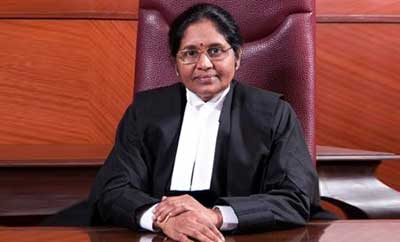Date: 31/01/2023
Relevance: GS-2: Government policies and interventions for development in various sectors and issues arising out of their design and implementation.
Key Phrases: Justice G. Rohini commission, sub-categorization of other backward classes, 102nd Constitution Amendment Act, Socio-Economic Caste Census, Article 340 of the Constitution.
Why in News?
- The Justice G. Rohini-led commission for the sub-categorization of other backward classes (OBCs) has now been given yet another extension in its tenure by the President, according to a gazette notification issued by the Union Ministry of Social Justice and Empowerment.
What is the sub-categorization of OBCs?
- The idea is to create sub-categories within the larger group of OBCs for the purpose of reservation.
- OBCs are granted 27% reservation in jobs and education under the central government.
- For OBCs, the debate arises out of the perception that only a few affluent communities among the over 2,600 included in the Central List of OBCs have secured a major part of the 27% reservation.
- The argument for creating sub-categories within OBCs is that it would ensure “equitable distribution” of representation among all OBC communities.
- It was to examine this that the Rohini Commission was constituted on October 2, 2017 under Article 340 of the Constitution.
- Article 340 empowers the President of India to appoint a commission to investigate issues concerning OBCs and make recommendations to improve their situation.
Do You Know?
- The 102nd Constitution Amendment Act, 2018 provided constitutional status to the National Commission for Backward Classes (NCBC), which was previously a statutory body under the Ministry of Social Justice and Empowerment.
- In 2015, the National Commission for Backward Classes (NCBC) recommended that OBCs should be categorized into extremely backward classes, more backward classes, and backward classes.
- NCBC has the authority to examine complaints and welfare measures regarding socially and educationally backward classes.
Commission’s Terms of References:
- To examine the extent of inequitable distribution of benefits of reservation among the castes or communities included in the broad category of OBCs with reference to such classes included in the Central List.
- To work out the mechanism, criteria, norms, and parameters in a scientific approach for sub-categorization within such OBCs.
- To take up the exercise of identifying the respective castes or communities or sub-castes or synonyms in the Central List of OBCs and classifying them into their respective sub-categories.4. A fourth term of reference was added on January 22, 2020. To study the various entries in the Central List of OBCs and recommend correction of any repetitions, ambiguities, inconsistencies, and errors of spelling or transcription.
When was it meant to submit its report?
- This is the 14th extension in the tenure that the commission has been given.
- The commission, formed in October 2017, was initially given 12 weeks to finish the task.
- Initially, the government cited more time required by the panel to gather information and data, and then it cited the pandemic.
- The notification issued on January 25 said the commission “shall present its report by 31st July 2023”.
Work done so far:
- As part of its work, the commission had identified dominant caste groups among all OBC communities in the Central list, finding that a small group of dominant OBC communities was crowding out a large number of communities from the 27% OBC quota.
- Consequently, the commission decided to divide all OBC communities into four broad categories, with the largest share of the quota pie going to the group that has historically been deprived of OBC quota as a result of being pushed out by dominant OBC groups.
Challenges before the Commission:
- The absence of data for the population of various communities to compare with their representation in jobs and admissions.
- The Commission wrote to the Ministry of Social Justice and Empowerment in 2018 to request an appropriate Budget provision for a proposed all-India survey to estimate the caste-wise population of OBCs.
- In 2018, the Home Ministry announced that in Census 2021, data on OBCs will also be collected, but since then the government has been silent on this.
Why a further extension?
- The fresh extension comes as the Bihar government is in the middle of its much-anticipated caste-based survey in the State and the Uttar Pradesh government is in the process of conducting a fresh survey to assess the need for OBC reservation in its local body elections, with other States like Madhya Pradesh and Maharashtra also looking to form panels to implement OBC reservation in local body polls.
- The last time a country-wide survey was conducted to enumerate the number of castes and their population was in 2011 as part of the Socio-Economic Caste Census. However, data from this were never made public.
Source: The Hindu
Mains Question:
Q. What is the requirement for the sub-categorization of other backward classes? What are the responsibilities of the commission formed for this purpose? Discuss.







